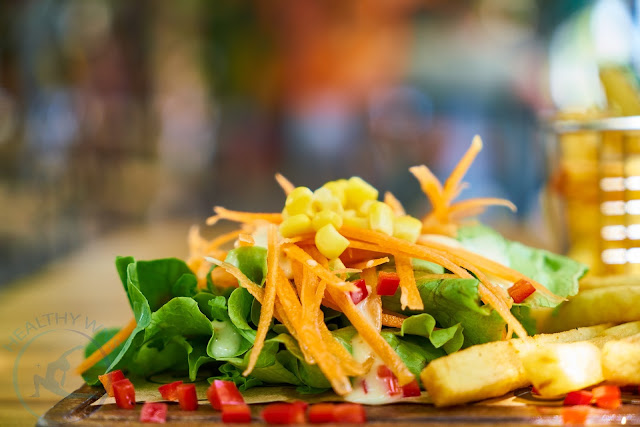The Raw Vegan Diet: is it Healthy?
 |
Raw Vegan Diet |
Raw veganism is not about eating raw or vegan food and avoiding all other foods. Rather, it’s a way of eating where the majority of your diet consists of unprocessed plant-based whole food that’s also uncooked.
This means no added sugar and minimal oil, salt, and spices. Raw foodists believe that cooking food above 104 degrees Celsius destroys many of its nutrients and also reduces its enzyme content.
This article explains what raw veganism is, why someone might follow this type of diet and the health benefits of following a raw vegan diet.
What is Raw Vegan Food?
At the core of raw veganism is a diet rich in unprocessed plant foods. While the specifics of raw vegan diets can vary, they typically include fruits, vegetables, nuts, seeds, and any other foods that are not cooked above 104 degrees Celsius.
Raw vegan diets can be very rich in certain nutrients, but they also tend to be low in others. The focus on raw foods means that a raw vegan diet is rich in fibre, antioxidants, and phytonutrients. It’s also low in protein, zinc, vitamin B12, and omega-3 fatty acids.
That’s why it’s important to eat a wide variety of foods on a raw vegan diet. Doing so will help you get a good mix of nutrients and make it easier to meet your daily needs.
Why Follow a Raw Vegan Diet?
Health benefits of a raw vegan diet
A raw vegan diet has many health benefits:
- Some people follow a raw vegan diet for ethical reasons. They may not want to support industries that produce meat or dairy products.
- Raw vegans also may want to follow a diet that aligns with their beliefs about natural foods and eating as minimally processed as possible.
- Other people may want to follow a raw vegan diet to improve their health.
Potential health benefits of a raw vegan diet
There are many potential health benefits of a raw vegan diet, including managing weight and possibly reducing the risk of heart disease and certain types of cancer.
- One potential benefit of a raw vegan diet is weight loss.
- Raw vegan diets tend to be higher in fibre and lower in fat and calories than other types of diets.
- This can make them useful for managing obesity and weight-related diseases like diabetes.
- Raw vegan diets may also help reduce the risk of certain diseases.
Research suggests that a raw vegan diet may reduce the risk of heart disease, though more research is needed to confirm this.
One reason raw vegan diets may reduce cardiovascular disease risk is that they tend to be high in fibre and low in fat, It also helps to:
- Better Digestion - Raw vegan diets are rich in fibre, which helps promote gut health and reduce symptoms like constipation. They may also be better for managing irritable bowel syndrome and other digestive disorders.
- Lower Blood Pressure - Raw vegan diets may reduce blood pressure. One reason raw vegan diets may reduce blood pressure is that they’re high in potassium — a nutrient that many people don’t eat enough of. Potassium has been shown to reduce blood pressure.
- Reduced Cancer Risk - There’s some evidence that raw vegan diets may reduce the risk of cancer. One reason raw vegan diets may reduce cancer risk is that they’re low in certain types of amino acids that can increase the risk of certain cancers.
- Mental Health - Another potential benefit of a raw vegan diet is improved mental health. Raw vegan diets can be rich in nutrients like vitamin B12 which are important for brain health.
Tips For Eating a Raw Vegan Diet
If you’re interested in following a raw vegan diet, there are a few things you can do to get started.
- First, make sure you’re getting enough calories. Raw vegan diets tend to be very low in protein, so getting enough calories is important. You need protein to stay healthy, grow, and build muscle.
- Raw vegan diets are also often low in certain vitamins and minerals, so you need to make sure you’re getting enough of these nutrients. It can be helpful to take a multivitamin to make up for any potential nutritional deficiencies.
- Another important thing to keep in mind when following a raw vegan diet is that cooked foods can be nutrient-rich too. For example, cooked tomatoes are high in lycopene, an antioxidant linked with heart health.
Raw vegan diets are rich in fiber, antioxidants, and phytonutrients. They’re also low in protein, zinc, vitamin B12, and omega-3 fatty acids.
That’s why it’s important to eat a wide variety of foods on a raw vegan diet. Doing so will help you get a good mix of nutrients and make it easier to meet your daily needs.
If you like the idea of a raw vegan diet, but you don’t want to give up cooked food entirely, you can try a raw vegan diet that includes some cooked foods.
This type of raw vegan diet will give you many of the same benefits as a strict raw vegan diet.
